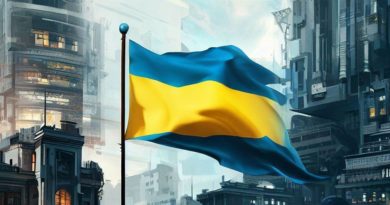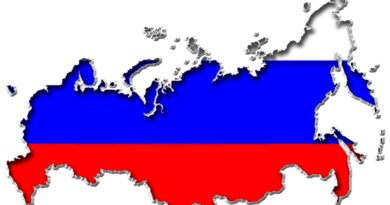Putin’s Popular Support: A Miasma of Jew Hate and Fatalism
After more than 500 days, not a single goal of the “special operation” in Ukraine has been achieved, yet Russians still back Vladimir Putin. Why?
The war has left hundreds of thousands of Russian soldiers dead and seriously wounded, seen the shelling of Russian cities, and caused a significant drop in living standards. Nevertheless, the most recent poll by the Levada Center shows 68% of Russians hope to see Putin as president after 2024.
The majority of Russian society simply ignored Yevgeniy Prigozhin, founder of the Wagner mercenary group, when he demolished the Kremlin’s propaganda about the causes of the war. Prigozhin was officially forgiven and personally met with Putin in the Kremlin five days after his mutiny. His argument that the war was caused by Russian generals and oligarchs and that the population had been “deceived into thinking there was a threat from Ukraine,” was not officially rejected and caused little discord.
When the full-scale invasion of Ukraine began, the majority of Russians reached for any explanation that would help restore a sense of inner comfort, regardless of its plausibility. At the very beginning of the war, most tried to rationalize the necessity of starting a so-called “special operation,” choosing the justifications that suited them best. Sociologists have since noted widespread denial that Russia launched the “special operation” at all and the growth of the idea the war was spontaneous and unavoidable.
“In the framework of this justification, war is presented as some unpleasant and even catastrophic natural phenomenon,” explained Svetlana Yerpyleva, a research fellow at the University of Bremen. “It can be terrible, take human lives, but it is pointless to oppose it — we do not oppose floods, hurricanes, and earthquakes. This means that war, like a natural disaster, must be accepted.”
Thus the true reasons for the conflict fade into the background and cease to have meaning. If the war is transformed into a natural event, how it began and was justified becomes unimportant. This is why Prigozhin’s words, which might have resonated in the first months of the war, are now meaningless for many Russians.
This approach also creates a mythologized perception of the war, which cannot be refuted since it is basically devoid of logic.
The certainty that the war was started by some evil entity is a key feature of such arguments. In the propagandists’ version of events, the role is played by the US, which “is trying to maintain its shaky status as world hegemon,” or the “collective West,” which for centuries “has wanted to destroy Russia.”
Get the Latest
Sign up below to recieve updates on the latest news, events, and more.
It doesn’t matter how this “terrible enemy” started the war — whether the Kremlin was provoked to take a “forceful decision”, or this evil unleashed the war itself by attacking Russia in some way. The central theme is that the enemy’s goal is the destruction of the motherland.
A conspiracy theory is also spreading, which centers on a supposed “Jewish mafia” and “Jewish Masonic World Government” as provoking the war to “expand living space at the expense of Ukraine and Russia.” As soon as the full-scale invasion began, such antisemitic passages began to appear not only in marginal media, but also on Telegram channels directly supervised by the presidential administration.
Orthodox priests preach that “globalists” — a term widely used by conspiracy theorists to refer to Jews and so-called “Anglo-Saxons” — created a “plan to depopulate the planet by the end of the 21st century,” and that only Russia can save the world. They do not explain how Putin, who ordered the invasion with its repeated manifestations of mass murder, is preserving life on the planet, nor why, after starting the war, he shouldn’t be seen as an agent of the Americans, “globalists” or “absolute evil.”
For most Russians — the “Putin majority” — such contradictions don’t appear to matter. The president is an opponent of “absolute evil” and therefore cannot be a part of it, no matter what he does.
Accepting war as a natural phenomenon has also led to a loss of connection with its goals. If neither the war’s beginning nor its end is dependent on the will of the people, then failure to achieve the declared goals of the “special operation” is insufficient to evoke disillusion. It just means the authorities have not yet found a way to tame the raging elements.
Such ideas also contribute to the growth of “learned helplessness” and dangerous fatalism. In September, 55% of Russians believed that the country was moving in the right direction, a figure that rose to 73% in June — despite attacks on Russian territory, together with the loss of swaths of territory in the occupied Kharkiv and Kherson regions. Asked to name a single military achievement as a result of the war, more than half of Russians are unable to do so.
The growing readiness to kill — and to die — with no understanding of the reason is frightening. The only reassurance is that many analysts believe Putin won’t use nuclear weapons if he anticipates a harsh response from outside. While Russian society is clearly incapable of keeping its authorities from insane acts, the threat of that response must come from elsewhere.
Kseniya Kirillova is an analyst focused on Russian society, mentality, propaganda, and foreign policy. The author of numerous articles for the Jamestown Foundation, she has also written for the Atlantic Council, Stratfor, and others.
Europe’s Edge is CEPA’s online journal covering critical topics on the foreign policy docket across Europe and North America. All opinions are those of the author and do not necessarily represent the position or views of the institutions they represent or the Center for European Policy Analysis.
Europe’s Edge
CEPA’s online journal covering critical topics on the foreign policy docket across Europe and North America.
This article has been archived for your research. The original version from Center for European Policy Analysis can be found here.



